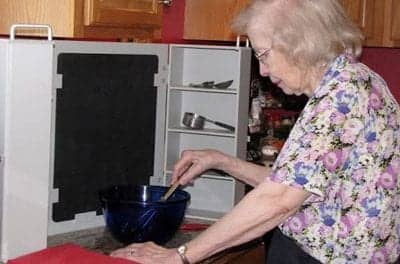As many as half of stroke survivors lose some of their ability to move their extremities. Now specialists in rehabilitation medicine at NewYork-Presbyterian Hospital/Columbia University Medical Center,New York, are pioneering the use of robotic devices to help them regain this function. Patients are currently being recruited for ongoing clinical research trials with the new devices.
The hospital isays it s the only place in the country to offer patients a first-of-its-kind robotic hand rehabilitation device that promises to make recovery more efficient, and the first in New York to use a new bionic leg to help stroke survivors who have difficulty walking, potentially allowing them to move on their own.
"Robotic devices are transforming rehabilitation medicine by improving our ability to help patients regain movement lost by stroke or other causes. The devices systematically help restore neural pathways for crucial movements like walking and gripping. By doing so, patients can regain freedom and independence and move on with their lives," says Joel Stein, MD, director of the rehabilitation medicine service and physiatrist-in-chief at NewYork-Presbyterian Hospital, chief of the Division of Rehabilitation Medicine at Weill Cornell Medical College, and chairman of the Department of Rehabilitation Medicine at Columbia University’s College of Physicians and Surgeons, in a statement.
The new robotic hand rehabilitation device works by engaging the patient to move his/her fingers along small tracks. Over time, the exercises increase motor control and strength. While there are a range of robotic rehab devices for the shoulder, elbow, and wrist, this device—known as the Amadeo—may be the first to focus specifically on the hand, according to the hospital.
"From dressing to eating to bathing, our hands are essential to our lives. Our hope is that this innovative device will help restore hand movement in affected patients," says Lauri Bishop, a research physical therapist in the Department of Rehabilitation and Regenerative Medicine at NewYork-Presbyterian Hospital/Columbia University Medical Center. "Traditionally hand rehabilitation has been done by having patients practice movements like buttoning a shirt. The robot makes this process more efficient. It also makes it easier to track a patient’s progress."
NewYork-Presbyterian/Columbia is recruiting for a clinical research trial of the device. They are looking for people who have been recovering from a stroke for 6 months or longer and have difficulties with hand function. Study participants will have hour-long sessions three times a week for 6 weeks. People who are interested in enrolling may contact Lauri Bishop at (212) 305-6095 or [email protected]. The Amadeo device is provided by Tyromotion Inc. of Graz, Austria.
Motors and a computer within the thigh-to-ankle Tibion Bionic Leg provide the assistance and resistance patients need to enable their stroke-weakened leg to work in concert with their unaffected leg during therapy. While patients wear the device, therapists teach them movements such as getting up from a chair and walking, and climbing stairs with both legs. As patients progress, therapists progressively dial back support provided by the Bionic Leg, until the patients are able to walk safely without it.
"Prior robotic devices for helping patients improve their gait involved either therapists or robots moving the affected leg while the patient was suspended over a treadmill," says Bishop. "This bionic leg requires the patient to put weight on the affected leg, and to try to take steps on their own. The device isn’t a prosthesis—it simply supports the patient while our therapists help them teach new areas of their brain to replace the stroke-affected areas that normally control leg function."
NewYork-Presbyterian/Columbia is recruiting for a clinical research trial of the device. They are looking for people who had a stroke at least 6 months ago who can walk inside their home with or without the use of a cane or walker, but still have difficulty with mobility. The 6-week training program involves 1-hour therapy sessions three times a week. Those who are interested in enrolling may contact Lauri Bishop at (212) 305-6095 or [email protected]. There is no cost to those participating in the study.
The study is funded by makers of the PK100 bionic leg device, the Tibion Corp, of Moffett Field, Calif.
[Source: New York-Presbyterian Hospital]




